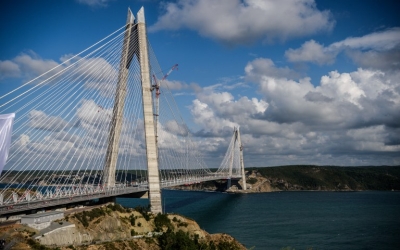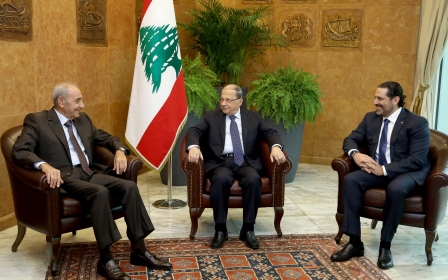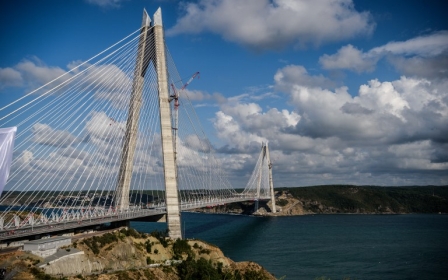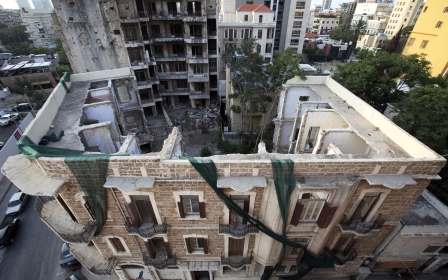Lebanon envoy summoned amid war of words between Beirut and Ankara
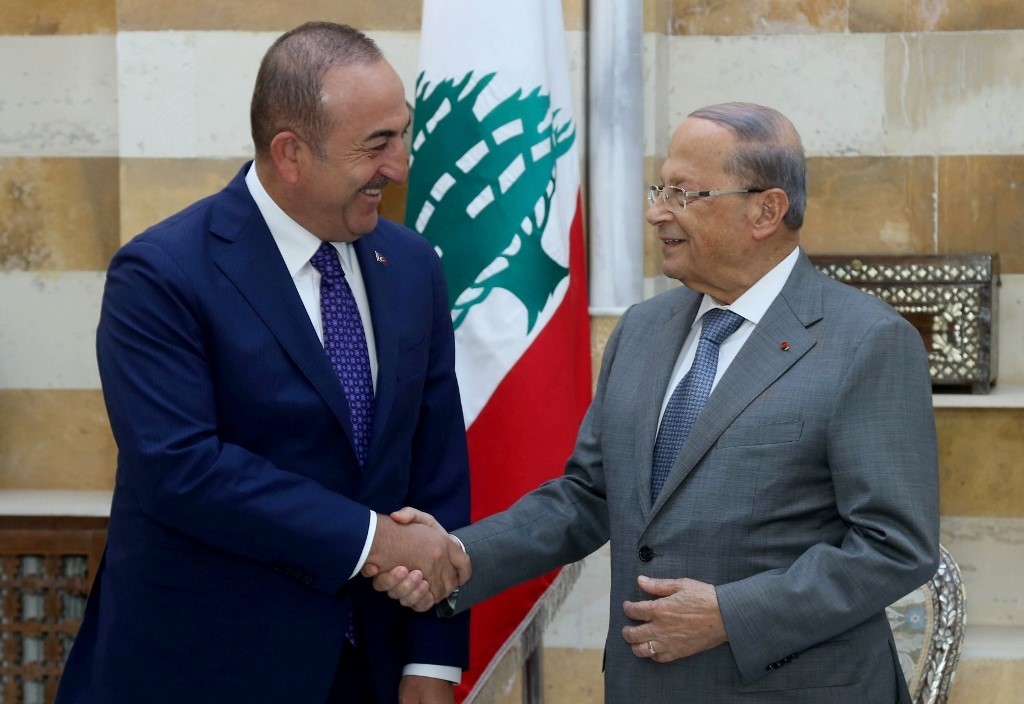
Turkey's foreign ministry has summoned the Lebanese ambassador after protesters unfurled an anti-Turkish banner on the gates of its embassy in Beirut, state media reported on Friday, marking the latest stage in a war or words between the two countries.
On Tuesday, Lebanon had called in the Turkish ambassador over a statement from Turkey's foreign ministry issued in response to a speech by Lebanese President Michel Aoun, which referred to violence and killing during the Ottoman occupation of what became the state of Lebanon.
Thursday's meeting with Ghassan Mouallem, the Lebanese ambassador, came several hours after a small group of Lebanese protesters hung out the banner, which featured an image of death mixed with the Turkish flag.
In Ankara, the foreign ministry denounced "these provocative acts" to the ambassador and called for quick action to protect Turkish interests in Lebanon, according to official news agency Anadolu.
It said the banner had been put on the Turkish embassy's gates by supporters of Aoun.
Speaking on Saturday to mark the centennial of the formation of Greater Lebanon, Aoun referred to the "state terror practised by the Ottomans against the Lebanese, especially during World War I".
He said there had been "hundreds of thousands of victims between famine, conscription and forced labour, without omitting the gallows through which they wanted to annihilate the spirit of emancipation and rebellion".
On Sunday, the Turkish foreign ministry issued an angry response, accusing Aoun's speech of being "baseless and biased" and saying "terror" had not taken place under Ottoman rule.
Hakan Cakil, the Turkish ambassador, was then ordered to attend the Lebanese foreign ministry and asked for "clarifications about the statement and for clear correction of the mistake made by the Turkish side, to avoid misunderstanding and in preservation of the special bilateral ties".
The row comes shortly after a visit to Lebanon by the Turkish Foreign Minister Mevlut Cavusoglu.
"This extremely unfortunate and irresponsible statement by President Aoun made only a week after the visit of Mevlut Cavusoglu, foreign affairs minister, to Lebanon, does not comply with the friendly relations between the two countries," the Turkish statement said.
Middle East Eye propose une couverture et une analyse indépendantes et incomparables du Moyen-Orient, de l’Afrique du Nord et d’autres régions du monde. Pour en savoir plus sur la reprise de ce contenu et les frais qui s’appliquent, veuillez remplir ce formulaire [en anglais]. Pour en savoir plus sur MEE, cliquez ici [en anglais].


